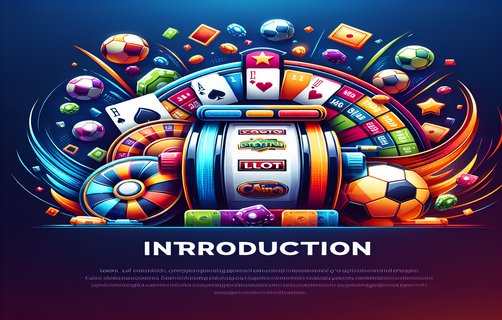The Loser's Perspective: Understanding Game Mechanics and Strategies in Online Gambling
In the world of online gambling, players often find themselves on the losing side, prompting a need to analyze various aspects of the game. From the Random Number Generator (RNG) to the nuances of managing tilt, each component plays a critical role in a player's experience. Understanding these factors can empower players to enhance their approach and perhaps improve their outcomes in the long run.

RNG (Random Number Generator) is a fundamental element in online gaming, especially in games like blackjack. It ensures fairness by generating random results for each game round. However, it's crucial for players to comprehend that just because a number is generated randomly does not mean it falls into predictable patterns that can be exploited. Many players mistakenly believe they can ‘read’ the patterns of outcomes, but RNG is designed explicitly to eliminate predictability. Thus, understanding the true nature of randomness can help players manage their expectations and strategy, allowing them to focus on making informed decisions rather than chasing losses based on flawed assumptions.
The rise of live dealer games has further transformed the online gambling landscape. These games combine the convenience of online platforms with the authenticity of a physical casino. However, for the player experiencing a losing streak, the live dealer format may intensify their frustration. Understanding the flow of the game, the dealer's tendencies, and the rules can help mitigate the emotional response to losing. Acknowledging that the dealer is also affected by RNG can offer a degree of consolation; the dealer's role is merely to facilitate the game rather than dictate its outcome. Engaging with live dealers as individuals rather than adversaries may also foster a positive gaming environment, which can lessen the psychological burden of losing.
Game responsiveness plays a pivotal role in the experience of online players. A responsive game feels dynamic and engaging, while sluggish interfaces can exacerbate frustration, especially when losses accumulate. Players must ensure their internet connection is stable and that they choose platforms known for their efficiency. This attention to technical aspects can contribute to a smoother gaming experience, enabling players to focus more on their strategies rather than the mechanics of the game. Responsive game design can also provide quick feedback on player choices, helping them adapt and improve their strategies in real-time.
Managing tilt is perhaps one of the most crucial skills for any gambler. Tilt, often manifesting as anger or frustration that leads to poor decision-making, can turn a once-strategic game into a series of impulsive actions that further undermine a player's bankroll. It's essential for players to recognize the signs of tilt and implement strategies to counteract it, such as taking breaks, setting loss limits, and practicing mindfulness. Acknowledging that losing is part of the game and developing an emotional regulation strategy can be transformative in maintaining a healthy gambling environment.
Learning basic blackjack strategy can also significantly affect a player's experience and results. Familiarizing oneself with fundamental strategies minimizes the house edge and maximizes the effectiveness of each decision. This knowledge can empower players to make choices based on mathematical probabilities instead of gut feelings. Furthermore, players should consider their position in the game and adapt their strategies accordingly, as the dynamics can change significantly based on the dealer's upcard and the cards in hand.
Investing in casino opportunities can also present unique avenues for players. Understanding the operational aspects of casinos—such as customer acquisition, retention strategies, and game popularity—can provide insights for potential investments in the gaming industry. Analyzing market trends, player demographics, and emerging technologies within this sector can yield valuable returns for those willing to take calculated risks. This shift from a player’s mindset to an investor’s perspective may also foster a deeper understanding of the mechanics governing the games they once solely participated in.

Finally, spotting weak players at the table can be beneficial for those looking to improve their outcomes when playing games like blackjack. Observing betting patterns, decision-making processes, and emotional responses can help identify less experienced players who may present lucrative opportunities. However, approaching this with respect and in the spirit of fair play is essential; after all, gambling should be an enjoyable experience for all participants.
In summary, the path of a poker player can be fraught with challenges. However, by exploring aspects such as RNG, live dealer dynamics, and game responsiveness, as well as developing personal strategies for tilt management and game knowledge, players can turn losses into learning experiences. Establishing an awareness of the mechanics at play can shift a player's perspective from one of despair to one of empowerment, laying the groundwork for better decision-making in future gambling endeavors.
